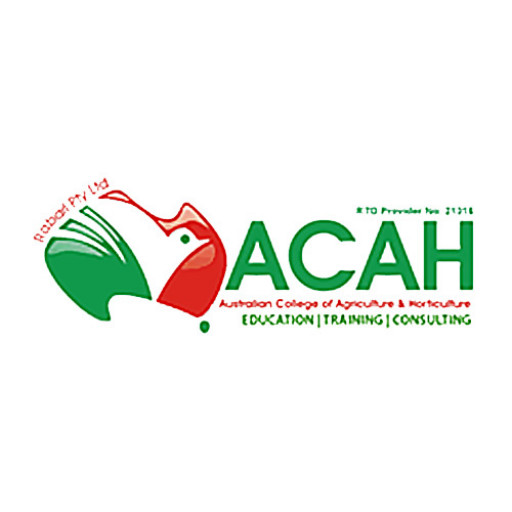Commercial Composting is a comprehensive program designed to equip students with the essential skills and knowledge required to succeed in the rapidly growing sustainable waste management industry. This course offers a practical and theoretical understanding of composting processes, focusing on the commercial aspects of waste decomposition, environmental impact, and business opportunities within the field. Participants will learn about different composting methods, including windrow, in-vessel, and barrel composting, along with the selection of appropriate feedstocks and management techniques to optimize compost quality and efficiency.
Throughout the program, students will explore vital topics such as waste characterization, handling and preprocessing, odour control, pathogens management, and regulatory standards governing commercial composting operations. The curriculum emphasizes the importance of sustainability and environmental responsibility, guiding students to develop innovative solutions for organic waste reduction and resource recovery. Hands-on training sessions provide practical experience in setting up, operating, and maintaining commercial composting facilities, enabling learners to gain confidence and competence in real-world applications.
The course also covers the business and marketing aspects of composting enterprises, including cost analysis, market positioning, and product certification. Students will learn how to develop successful business plans, understand supply chain logistics, and identify potential markets for compost products. Additionally, the program highlights the technological advancements in composting equipment and monitoring systems, ensuring students stay up-to-date with industry innovations.
Ideal for individuals seeking employment in waste management companies, environmental consultancy firms, or those looking to start their own composting business, this program fosters a comprehensive understanding of the technical, environmental, and commercial considerations of commercial composting. Graduates will be well-prepared to implement sustainable waste management practices, contribute to environmental protection, and capitalize on the economic opportunities presented by the expanding market for eco-friendly compost products. With a focus on practical skills, industry best practices, and environmental sustainability, this program is a valuable stepping stone for anyone committed to making a positive impact on the environment through innovative composting solutions.
The Commercial Composting program at the Australian College of Agriculture & Horticulture is designed to equip students with comprehensive knowledge and practical skills necessary for successful careers in organic waste management and sustainable composting practices. Throughout the course, students will explore a wide range of topics, starting with the fundamental principles of composting, including the science of organic matter decomposition, microbial activity, and the environmental benefits of composting as a waste reduction strategy. The program emphasizes the development of operational skills needed to design, implement, and manage commercial composting facilities effectively, ensuring compliance with environmental regulations and standards.
Participants will learn about different composting methods such as aerated static piles, in-vessel composting, and windrow techniques, gaining insights into selecting appropriate systems based on scale, material inputs, and environmental considerations. The curriculum also covers the sourcing and treatment of organic waste from various industries, including agricultural, municipal, and industrial sectors, as well as the logistics involved in collection, transportation, and processing. Students will develop an understanding of maintaining optimal conditions for composting processes, including temperature control, moisture levels, aeration, and pathogen reduction.
The program places a strong emphasis on sustainability and environmental impact mitigation, teaching students how to produce high-quality, market-ready compost that can be used in agriculture, landscaping, and horticulture. Entrepreneurship and business management modules prepare students for the commercial aspects of composting, including marketing, sales, and establishing profitable composting enterprises. Additionally, the course explores innovative trends in organic waste management, such as the use of composting in circular economies and the integration of composting with other waste processing technologies.
Practical training is a core component of the program, involving hands-on experience in operating composting equipment, monitoring compost quality, and troubleshooting operational issues. Students will also have opportunities for site visits and industry placements to gain real-world exposure and build professional networks. By the completion of this program, graduates are well-prepared to contribute to sustainable waste management solutions, start their own composting businesses, or work within existing organizations to improve their composting operations. The program is ideal for individuals passionate about environmental sustainability, agriculture, and innovative waste management practices, providing a solid foundation for a rewarding career in the growing field of commercial composting.
The Commercial Composting program at the Australian College of Agriculture & Horticulture is designed to provide students with comprehensive knowledge and practical skills necessary for successful careers in compost production and waste management. The program emphasizes sustainable practices, environmental responsibility, and innovative techniques in organic waste recycling. It aims to equip participants with an understanding of composting processes, media selection, operational management, and quality assurance of compost products. Students will learn about the biological, chemical, and physical factors involved in composting, including microbial activity, aeration, moisture control, temperature regulation, and biosecurity measures. The curriculum covers the planning, design, and site management of composting facilities, ensuring students are prepared to oversee commercial operations effectively. Additionally, the program explores regulations and standards pertaining to waste disposal and compost approvals to foster compliant practices within the industry. Practical training is an integral component, involving hands-on experience in composting methods, equipment handling, and troubleshooting potential issues. The coursework integrates environmental science with business management principles, preparing graduates for operational roles or entrepreneurship within the composting sector. Assessment methods include practical demonstrations, project work, examinations, and workplace training. Entry requirements typically include a relevant prior qualification or industry experience, and applicants must demonstrate a commitment to environmental sustainability. Upon successful completion, graduates can pursue employment opportunities in waste management companies, agricultural sectors, municipal councils, or establish their own composting operations. The program’s duration, delivery mode, and specific content may vary, but the focus remains on developing technical expertise and promoting eco-friendly waste management solutions in the commercial sector.
Funding options for the Commercial Composting program at the Australian College of Agriculture & Horticulture include a variety of financial assistance schemes designed to support students in their educational pursuits. Students may be eligible for government loans such as the Commonwealth Bank Student Loan, which offers low-interest rates and flexible repayment plans tailored to fit the needs of full-time students. Additionally, the Australian Government’s VET Student Loans program can provide eligible students with financial support to cover tuition fees, making it more affordable to undertake vocational education and training courses like this one.
Scholarships and grants are also available through the college for outstanding students or those demonstrating financial need. These awards are often based on academic merit, community involvement, or special circumstances, helping to offset costs associated with tuition, textbooks, and materials. The college’s partnership with industry stakeholders may also provide access to sponsorship opportunities or employer-funded training programs whereby companies involved in waste management or sustainable agriculture may subsidize the cost of studying for employees or interns.
For international students, different financing arrangements are usually available, including private loans, scholarships, or sponsorships from educational organizations within Australia. Students are encouraged to contact the college’s admissions office to explore specific options tailored to their individual circumstances. Furthermore, flexible payment plans might be offered in some cases, allowing students to pay their tuition fees in installments over the duration of their studies.
Many students also locate external funding sources such as community grants, philanthropic foundations, or industry-specific funds that promote sustainable development and environmental innovation. Some students might leverage part-time work opportunities available nearby or through the college, which can help cover living costs and educational expenses simultaneously.
In conclusion, the financial options for students wishing to pursue the Commercial Composting program are diverse, combining government support, institutional scholarships, external grants, and personal financing strategies to make education accessible and manageable. Prospective students should thoroughly investigate all available financial aid programs early in their application process to optimize their funding opportunities and ensure a smooth educational experience.
The Commercial Composting program at the Australian College of Agriculture & Horticulture is designed to equip students with comprehensive knowledge and practical skills necessary for successful careers in the waste management and organic recycling industries. This program provides in-depth instruction on the principles of composting, waste management regulations, and sustainable environmental practices, preparing graduates to contribute effectively to the growing field of organic waste processing. Throughout the course, students learn about various composting techniques, including aerobic and anaerobic processes, and gain hands-on experience in operating composting facilities, evaluating compost quality, and implementing practices that maximize efficiency and environmental benefits. The curriculum covers essential topics such as the biology of composting, health and safety protocols, and the economic aspects of commercial composting operations. Students also explore the uses and applications of finished compost in agriculture, landscaping, and environmental restoration projects. The program emphasizes sustainable practices and innovation, aligning with Australia's commitment to environmental stewardship and waste reduction. Upon completion, graduates are well-prepared to work in private composting companies, government agencies, and agricultural sectors, or to establish their own composting operations. The Australian College of Agriculture & Horticulture supports students through industry connections, practical placements, and up-to-date course materials, ensuring that learners are able to transition smoothly into the workforce. The program's duration, delivery methods, and entry requirements are structured to accommodate a diverse range of learners, from recent school leavers to experienced professionals seeking specialization or career advancement. Overall, the Commercial Composting program aims to foster a new generation of environmentally conscious and technically skilled professionals dedicated to advancing sustainable waste management solutions in Australia.







